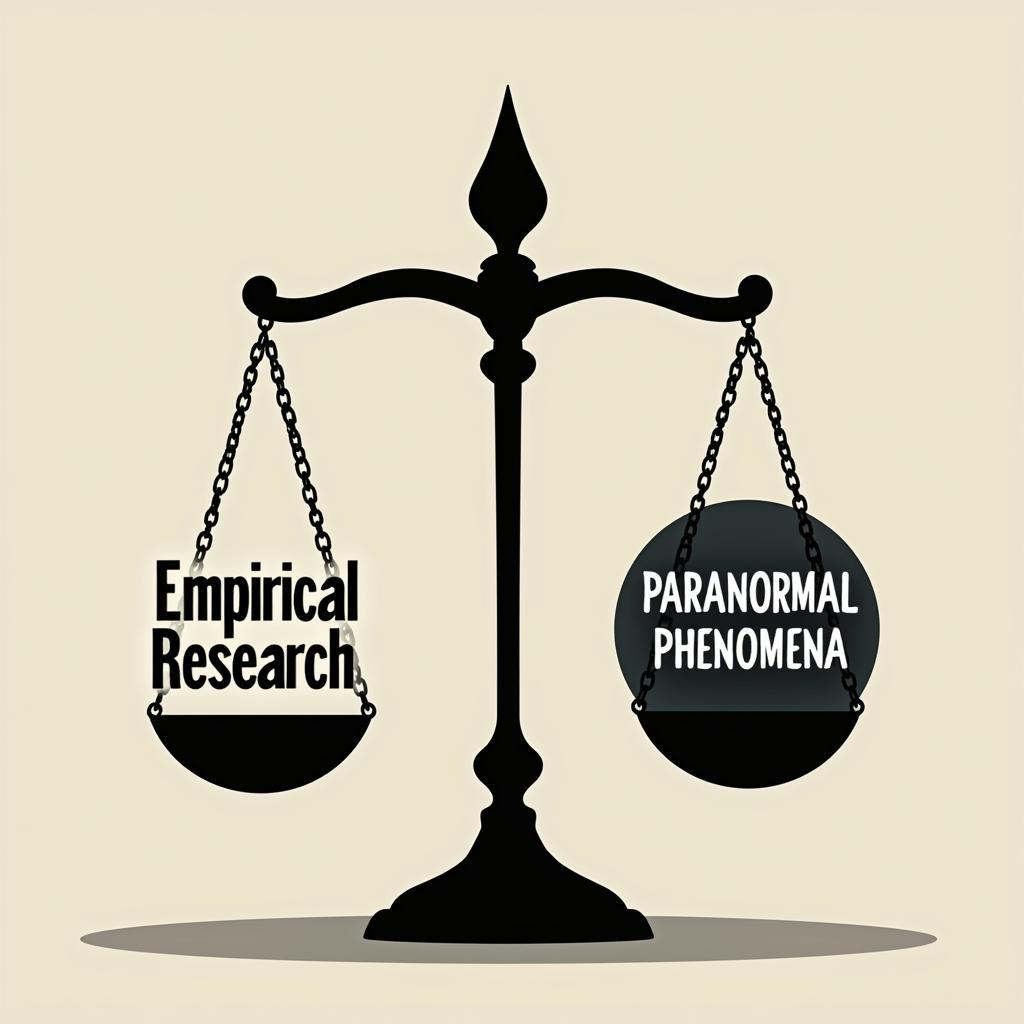Empirical research papers are the backbone of scientific inquiry, relying on observed and measured data to draw conclusions about the world around us. While often associated with fields like biology, psychology, and sociology, empirical research extends its reach into the realm of the paranormal. These investigations aim to shed light on phenomena that defy conventional explanation, grounding them in rigorous methodologies typically reserved for the tangible world.
Empirical Research and the Paranormal: A Balancing Act
 Empirical Research in the Paranormal: A Delicate Balance
Empirical Research in the Paranormal: A Delicate Balance
Paranormal research faces a unique challenge. How do you apply the scientific method – designed for repeatable experiments and quantifiable data – to experiences that are often spontaneous, subjective, and resistant to traditional measurement? This is where the creativity and adaptability of empirical research come into play.
Researchers in this field have developed ingenious methods to collect data. Electronic voice phenomena (EVP) recordings attempt to capture disembodied voices, while electromagnetic field (EMF) detectors monitor fluctuations that might indicate a ghostly presence. Controlled experiments, like those conducted at reportedly haunted locations, introduce variables to observe any potential paranormal responses.
Diving Deeper: Examples of Empirical Research Papers in Paranormal Investigation
Let’s delve into specific examples of how researchers are utilizing empirical methodologies to study paranormal phenomena:
1. Ganzfeld Experiments and Psychic Ability: The Ganzfeld experiment, designed to reduce external stimuli, has been a cornerstone of parapsychological research. Participants are placed in a sensory-deprived state and asked to receive information from a “sender” in another room. Statistical analysis of successful “hits” is used to assess potential evidence for telepathy.
2. Investigating Near-Death Experiences (NDEs): Researchers like Dr. Bruce Greyson have conducted large-scale surveys and interviews with individuals who have reported NDEs. By analyzing common themes, emotional responses, and long-term effects, these studies aim to identify patterns and potential explanations for this profound phenomenon.
3. Documenting Apparitions and Hauntings: Groups like the Society for Psychical Research (SPR) have a long history of investigating reports of hauntings. They utilize a multi-disciplinary approach, employing historians, psychologists, and field investigators to gather evidence, interview witnesses, and analyze historical data to corroborate paranormal claims.
The Importance of Skepticism and Rigor in Empirical Research
While the examples above showcase the potential of empirical research in paranormal investigation, it’s crucial to acknowledge the importance of skepticism and methodological rigor. Paranormal research is often criticized for its lack of replicability and the potential for bias or misinterpretation of data.
Ethical considerations are also paramount. Researchers must obtain informed consent from participants, especially when dealing with sensitive topics like NDEs or personal encounters with the unexplained.
Bridging the Gap: Empirical Research and the Future of Paranormal Understanding
Empirical research, with its emphasis on observation, measurement, and analysis, holds the key to unlocking a deeper understanding of the paranormal. While challenges remain, the pursuit of rigorous methodologies, coupled with a healthy dose of skepticism, will continue to push the boundaries of our knowledge and challenge our perceptions of the world around us.
Interested in learning more about the applications of research methodologies? Check out these resources:
By embracing the principles of empirical research, we embark on a journey of discovery, venturing beyond the known and into the fascinating realm of the unexplained.
Frequently Asked Questions About Empirical Research in Paranormal Investigation
1. Can you truly study paranormal phenomena scientifically?
This is a question at the heart of paranormal research. While some phenomena may remain elusive, the goal is to apply scientific principles and methodologies to gather evidence and explore potential explanations.
2. What are some of the challenges faced by Paranormal Researchers?
Replicability, subjective experiences, and the difficulty of controlling for variables in uncontrolled environments are some of the ongoing challenges.
3. Are there any proven cases of paranormal activity?
While some individual studies may present compelling evidence, definitive proof remains a subject of debate. The field relies on the accumulation of data and continued research to draw more concrete conclusions.